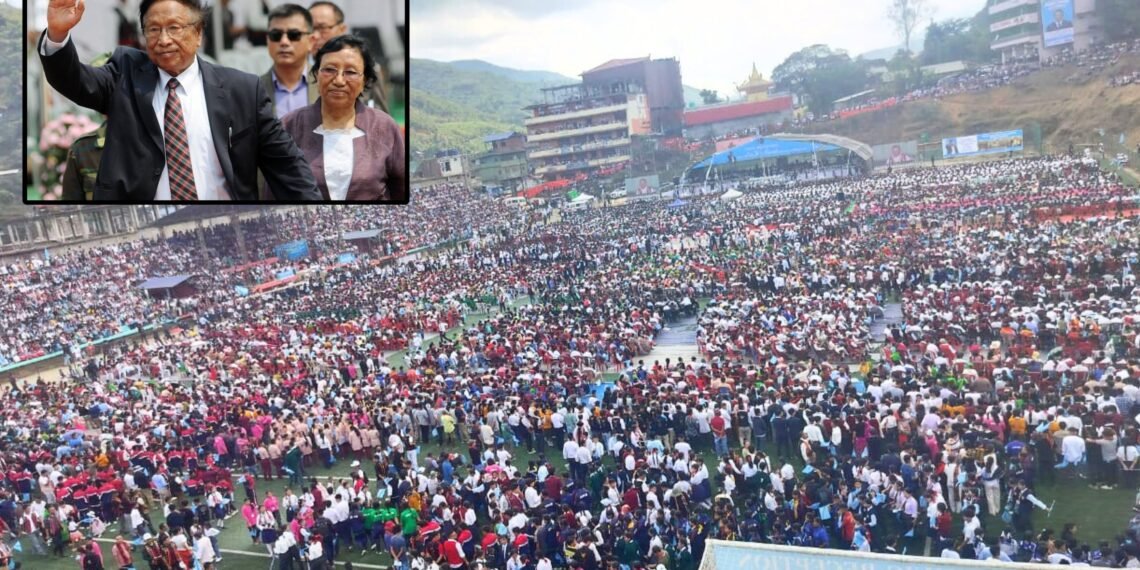A viral video showing the Kuki group greeting Muivah during his Senapati visit has sparked outrage and demands for accountability from citizens and victims’ families.
BY PC Bureau
October 29, 2025 — A wave of outrage and disbelief has swept through the Kuki community after the Kuki Inpi Sadar Hills formally welcomed Thuingaleng Muivah, General Secretary of the NSCN-IM—a figure deeply associated with the violent ethnic clashes of the 1990s that devastated the Kukis.
During a public felicitation event in Senapati district on October 29, representatives from Kuki Inpi Sadar Hills joined other organizations to honor Muivah with full ceremonial fanfare. A widely circulated video shows a compère calling their name before thousands of onlookers. It has left little room for ambiguity.
In what appeared to be an urgent bid to contain public anger, Kuki Inpi Manipur—the apex body—issued a statement the same day through spokesperson Janghaolun Haokip. The statement claimed that the video shared on social media had wrongly introduced the group by name. It further stressed that Muivah had “no association whatsoever” with Kuki Inpi Manipur, that no such meeting was sanctioned, and that the video’s recording and dissemination constituted a “willful distortion” deserving strong condemnation.
— Navin Upadhyay (@Navinupadhya) October 30, 2025
However, these denials falter in the face of the footage itself, which unmistakably claimed that represenatives of Kuki Inpi Sadar Hills did line up to greet Muivah— aligning themselves with a man seen by many Kukis as a symbol of past atrocities.
A subsequent telephonic inquiry corroborated the authenticity of the footage and confirmed that the Kuki Inpi Sadar Hills delegation did, in fact, participate in the felicitation ceremony. Kuki Inpi Sadar Hills has also not denied felicitating Th. Muivah.
READ: Trump and Xi Meet After Six Years to Calm Trade Tensions
Historical Context: The 1990s Kuki–Naga Conflict
In the early 1990s, the Tangkhul-led NSCN-IM waged a violent campaign against the Kukis under the slogan “Nagaland for Christ.”
- Nearly 2,000 Kukis were killed.
- Over 300 Kuki villages were reduced to ashes.
- Thousands were displaced, many left with lifelong scars.
For survivors, Thuingaleng Muivah remains an emblem of that trauma—an unhealed wound in the collective memory of the Kuki people.
The decision to felicitate Muivah has sparked a storm of condemnation from citizens, civil society groups, and families of victims, who call it a distortion of historical truth and a betrayal of those who died in the conflict.
Social media voices echoed the collective grief and anger:
- “What kind of generation forgets the blood and tears of its own martyrs?”
- “This is not reconciliation—this is surrender.”
Many have demanded accountability from Kuki leadership and urged all Kuki organizations to uphold the dignity of their people’s struggle—to ensure that the horrors of the 1990s are neither erased nor forgiven through ceremonial gestures.
As tensions mount, the controversy stands as a sobering warning: a community that neglects its history risks surrendering its future.














